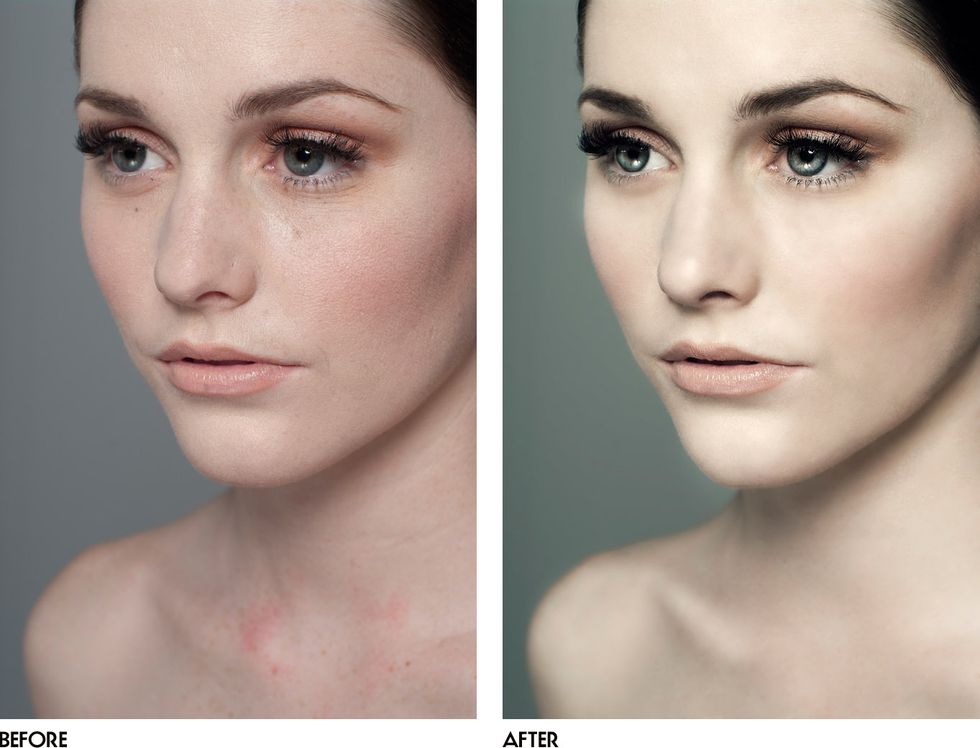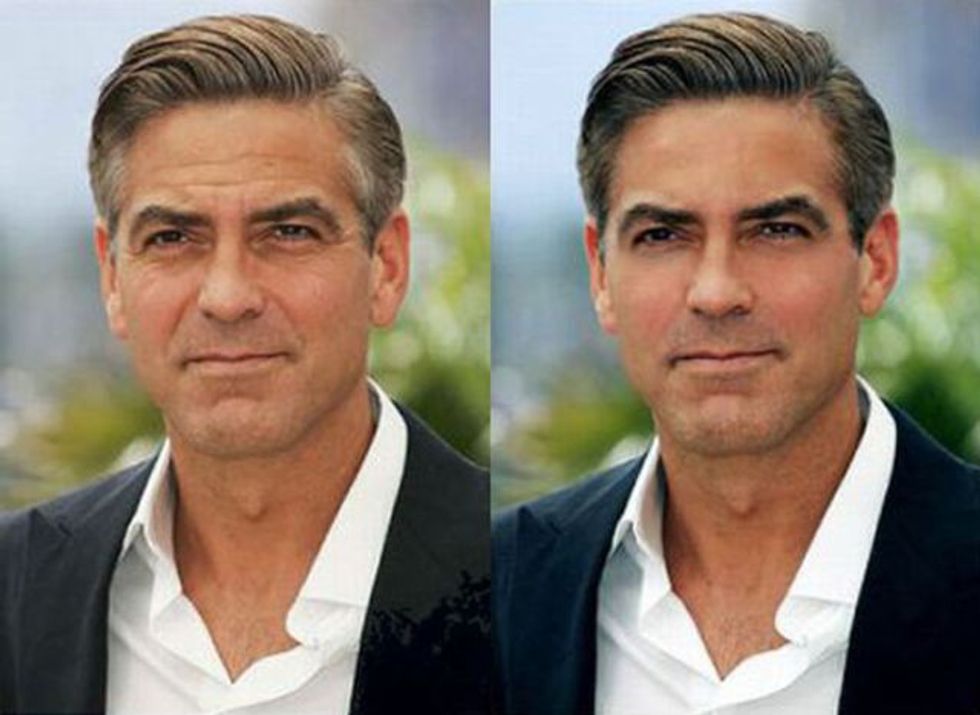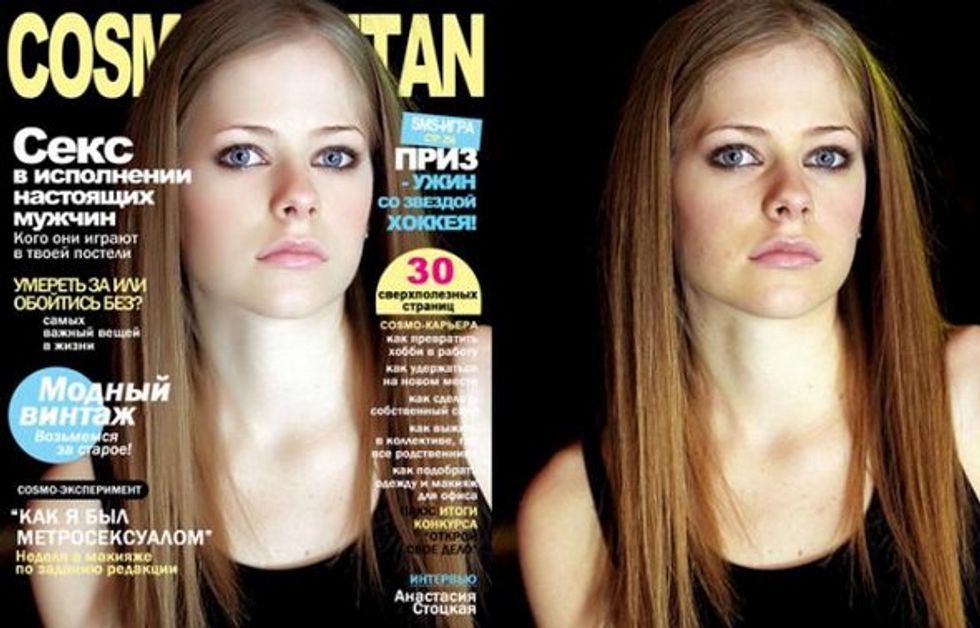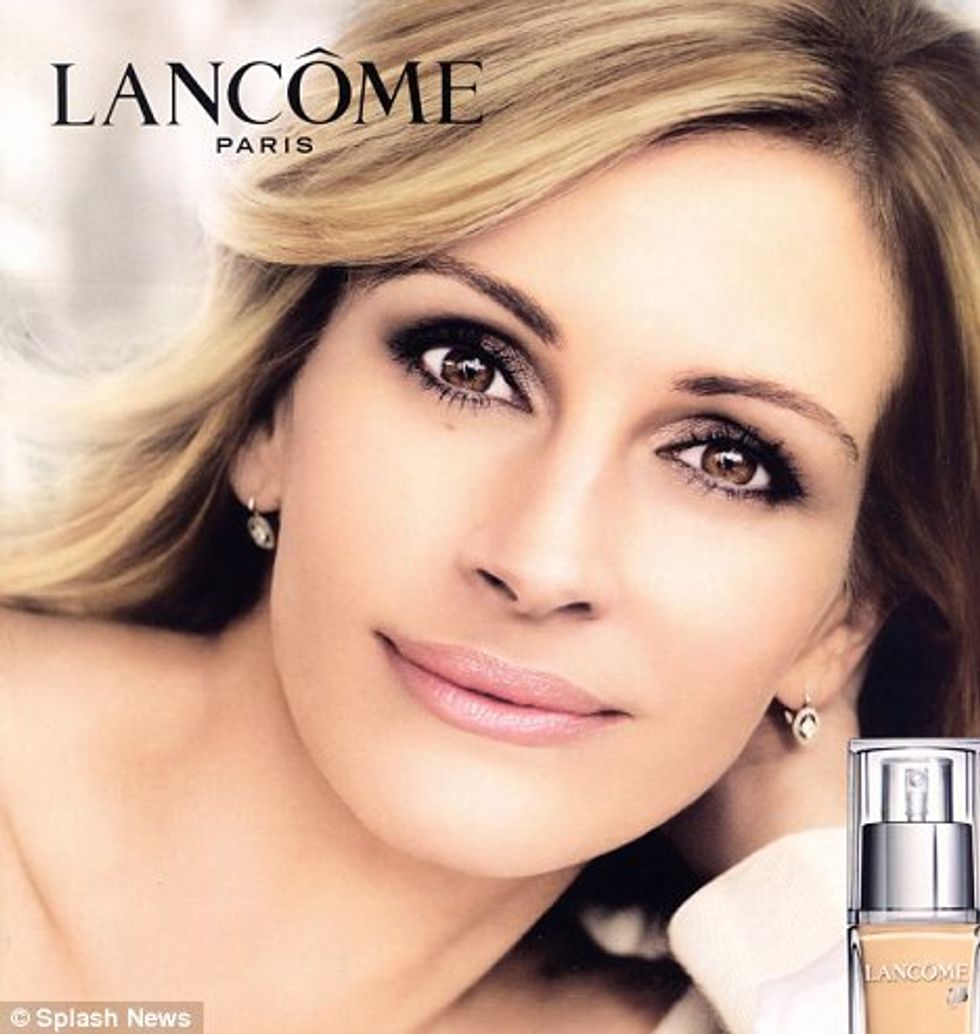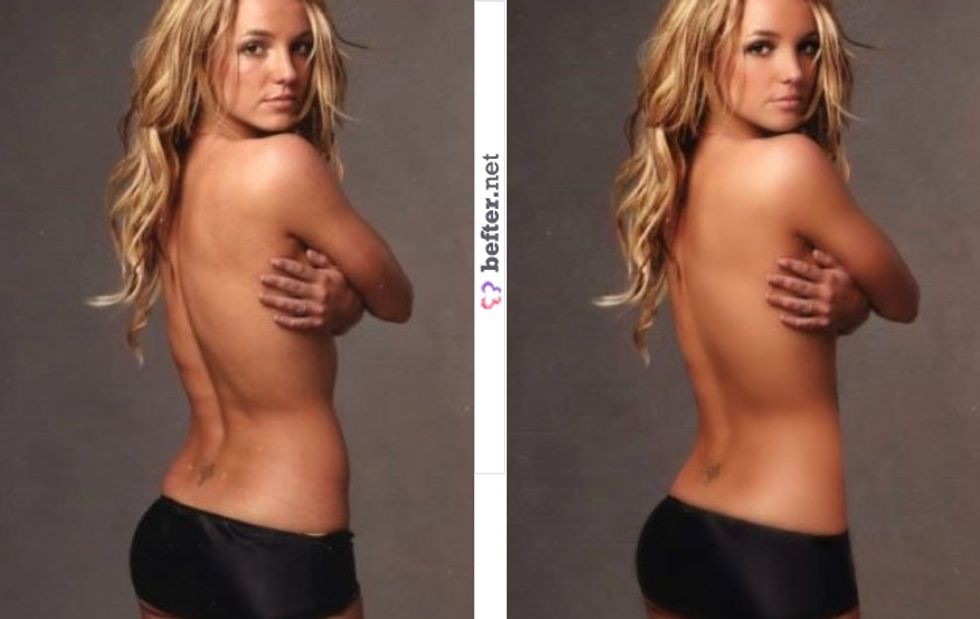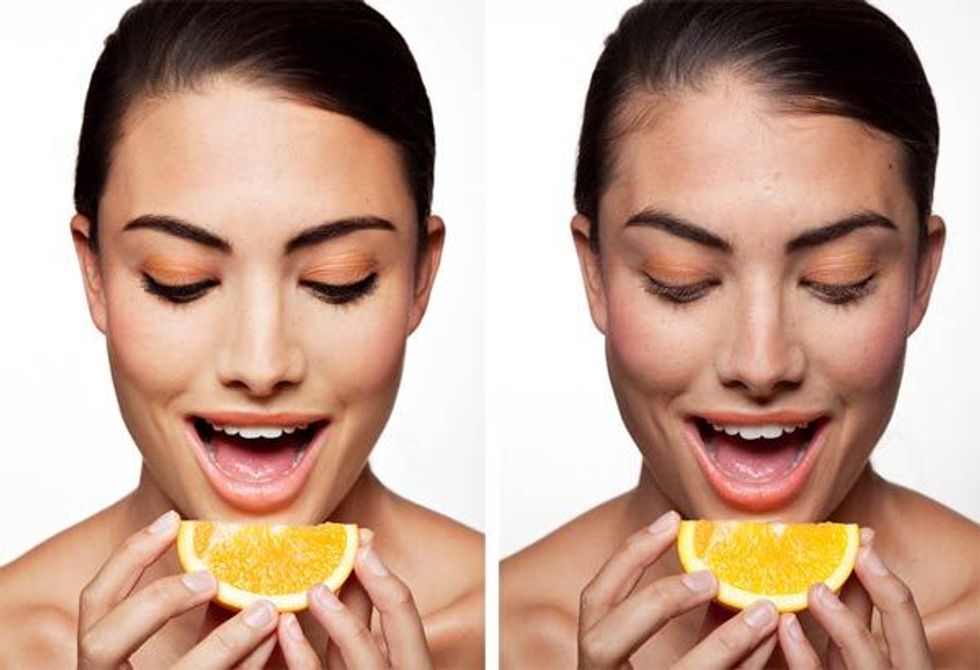We see it everyday, whether we are browsing on our phones, or walking on the street. It's all over shopping bags and billboards, magazine covers and TV commercials. 50 year old women's faces appear spotless and wrinkle-free in magazine ads promoting anti-wrinkle cream, men are chiseled, lean, and shirtless in cologne commercials, super models lounge like goddesses with long legs and thin waists with skin that practically glows. In the last 25 years, Photoshop has completely changed how advertising and marketing capture the attention of consumers.
But how far is too far?
Although Adobe Photoshop is revered for its life-changing resources, it also has a bad reputation with its photo enhancing and airbrushing techniques when used in advertisements. Photoshop allows photo editors to airbrush uneven skin tones, make eyes and faces glow with happy radiance, make legs longer, waists smaller and breasts larger. Although many Americans are critically aware of the techniques of Photoshop, they don't realize to what extent models are edited. Many girls believe that airbrushing is just a technique used to remove zits and pimples, when in fact it can be used to take away wrinkles, stretch marks, and even cellulite from models. Young teens and children feel pressured to look like people in magazines, even though it is physically impossible to achieve these idealistic figures since they don't exist.
Although Photoshopped and airbrushed photos have a considerable effect on both genders, it takes a larger toll on the self-esteem of women and young girls. The Dove Self-Esteem Fund revealed that '80% of women felt images of female stars and models in the media made them feel insecure about themselves', and it also showed that '71% of girls with low self-esteem felt their appearance didn't measure up, including not feeling pretty enough, thin enough, or stylish enough.' The American Medical Association (AMA) stated that these edited advertisements may contribute to the rise of eating disorders in our nation.
"It's the subtlety that people get attacked with every time," says Sarah Jung, an illustration major at the Maryland Institute College of Art "editing can be such a small thing… it's what builds up and hurts us."
Many parents have had enough with Photoshop. In October of 2011, couple Seth and Eva Matlins created a bill called the Self-Esteem Act, which stated that any ad that was photoshopped or airbrushed had to be accompanied with a disclaimer stating that the photo was edited. Yet, it is now the year 2015. The bill was not passed, and the question is:
Will the United States ever enforce regulations on photo edited images?
England, France, and Israel have.
A few years ago, each country created its own code and regulations, restricting Photoshop. England made it necessary for all children ads to have no photoshopping at all, while advertisements directed towards adults had to have a disclaimer stating that the ad was edited. The above ad of Julia Roberts was banned in the UK for its unrealistic appearance of the actress. If the advertisement doesn't reflect the true appearance of that model, and fails to have a disclaimer, the UK will not allow it to show anywhere in its nation.
France did the same; in 2009 French Parliament member Valerie Boyer stated that all published images had to feature a warning label stating "Retouched photograph aimed at changing a person's physical appearance."
Israel's main concern is for their models to be healthy and at a normal body weight. The country passed a law that stated that models had to have a body mass index of 18.5 or more. All advertisements in Israel must also have a disclosure if they were edited, mainly if they made women skinnier (Krashinsky, 2013).
Why has nothing changed in the United States? The Federal Trade Commission's principle mission is to protect the public from false advertising. Is the process of airbrushing and photoshopping not a form of false advertising?
"[Photoshop] has its place," says Devon Bragg an illustration major at the Maryland Institute College of Art "But I believe once you start editing the product, or the person, it's unfair to the consumer and to the people in general. You're lying to them."
Graphic designers and photo editors argue that photoshopping images of models is a form of art. Many defend their jobs saying that Photoshop is now an inherent part of the beauty industry, and that it is just as important as make-up (Diller, 2011) Others believe that they photoshop just the right amount, and that they have never done any work that made them feel uncomfortable (North, 2009). Some photo editors have even scoffed at the idea of changing photoshop regulations:
"We have wonderful tools to create images, new digital cameras and photographic digital printers and powerful tools such as Photoshop and we are expected to do what -- nothing? I don't think so" said Jeffe Schewe of Photoshop News in 2011.
But our country isn't asking for Photoshop to be banned or taken away from the advertising field. The American Medical Association and Self-Esteem Act have only mentioned creating disclaimers warning the viewer that the image had been edited. It shouldn't hurt the public or artists if ads are to have a warning stating that a photo has been retouched. The fact that editors have stated that advertising is dependent on Photoshop is a lie. If it were true, then Aerie's #AerieReal campaign and Dove's campaign for Real Beauty would have failed years ago. Both companies' eliminated photoshop in their advertising, and have been commended for their diversity and efforts to create a different world for advertising towards women.
Just as England, France, and Israel have; I think it is mandatory for the United States to transform their methods of advertising towards the population. If other countries have succeeded, and if American companies have proven achievement in their anti-editing goals, then I think it should be vital for our country to at least try in its efforts. No one will hurt from this change, everyone will benefit. It is time to teach younger generations what real beauty is like, starting by showing that our country cares about the self-esteem and self-confidence of its nation.


